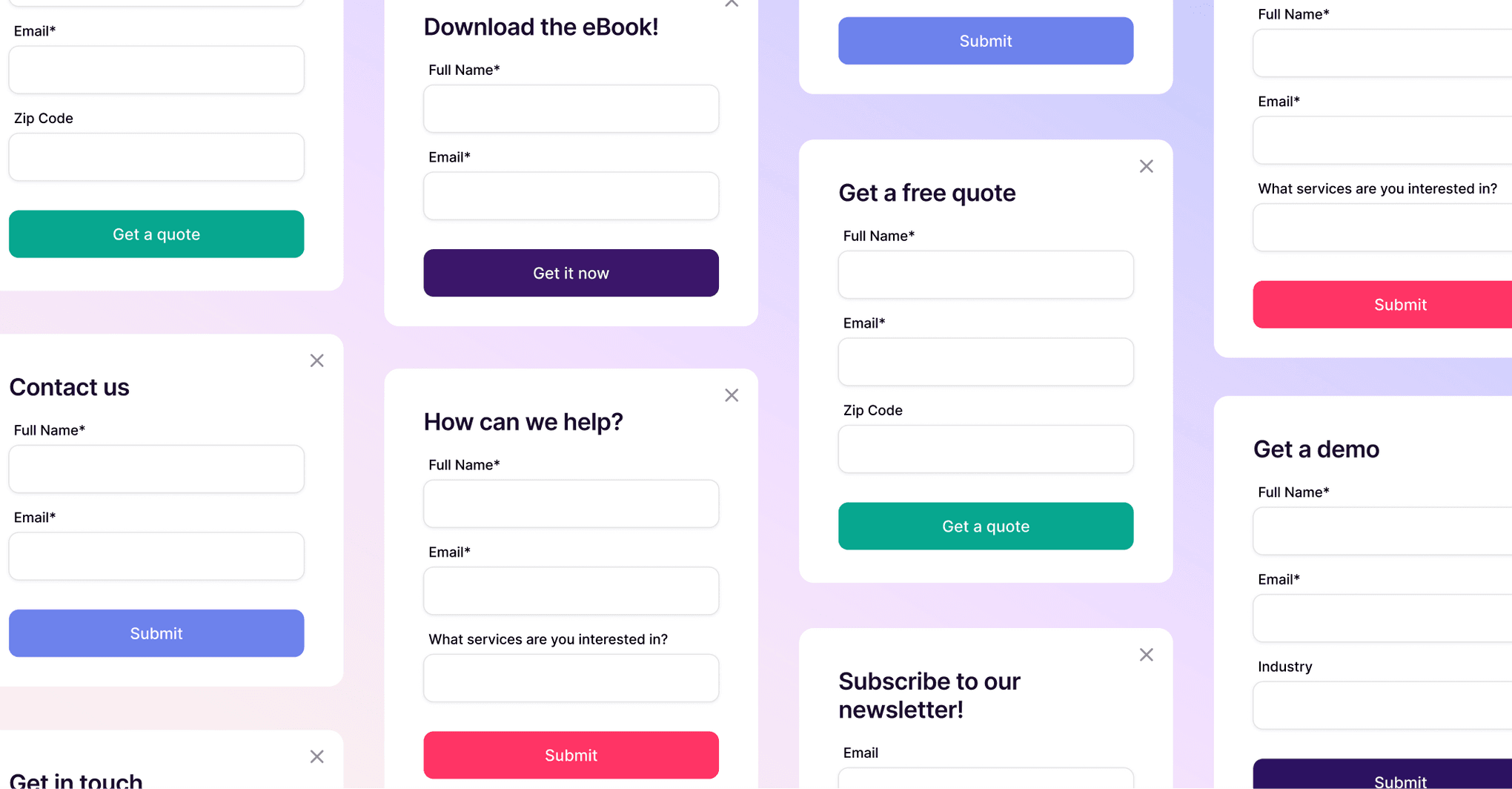Jessica Andrews
VP Marketing
Key Takeaways
Modern agency CRMs deliver an average ROI of $8.71 for every dollar spent, with 81% of effective organizations using CRM as part of their sales process.
Agencies require flexible CRMs that adapt to relationship-based selling rather than traditional rigid sales models, as 43% of CRM users only utilize half of available features due to poor software fit.
Copper CRM helps agencies manage complex client relationships through its Google Workspace integration, enabling teams to track communications, automate follow-ups, and maintain visibility across multiple projects without switching between platforms.
Team collaboration through CRM increases deal closure rates, with the most important feature being ease of use since 22% of implementation failures stem from staff adoption resistance.
Automation capabilities in agency CRMs can save up to 15 hours per week in manual data entry while enabling personalized email marketing, automated follow-ups, and data-driven reporting for client relationships.
Why agencies need specialized CRMs
Since then though, CRMs have evolved into something much more. Agencies are more relationship-oriented than the old CRM model allows for. Every client or prospective client, is different, with a different journey and set of needs. The rigid view of the customer journey that traditional CRM was built around is now obsolete. Flexibility is everything when it comes to choosing a CRM.
Luckily, modern CRMs now come packed with a variety of features designed to help drive business success. These days your standard CRM is able to identify sales opportunities, assist with lead generation, and help manage all types of operational data.
According to Nucleus Research, a business can expect an average return on investment of $8.71 for every dollar spent on a CRM. Another report by the Aberdeen Group found that 81% of effective organizations consistently use a CRM as part of their sales process.
What that means is that if your agency isn’t already using a CRM, then you need to change that now.
However, what that doesn’t mean is that you need to use the same enterprise-level CRMs that Fortune 500 companies use.
As a small-to-medium-sized agency, you'll want a CRM that's built for the specific needs of agencies. With 43% of CRM customers using less than half of the features available to them through their CRM, that’s a lot of businesses wasting money on bloated software that isn’t addressing their specific needs.
See how one agency gained pipeline visibility by switching to Copper
So what is the best CRM for a marketing agency to use? Here are the top six things to look for to make sure that your new CRM is a good fit for your agency.
1. Flexibility
The first thing you should look for in a CRM is that it’s powerful enough to handle all your current requirements, and to adapt to any future challenges within your business.
As your agency grows, the right CRM for marketing campaigns should be flexible enough to manage more diverse sales channels, track an influx of new leads, adapt to evolving operational requirements, and offer pricing that scales as your needs become more complex—otherwise, you risk using a solution that stifles rather than supports your agency’s growth.

Pro-tip
Learn more? 👇
Looking for tips on how an agency can best use agency management software? Download the free Agency CRM Best Practices guide.
Assessing current and future needs
When picking a CRM, you should first take stock of what kind of features your agency currently needs, and what you’ll most likely need in the future. Take a look at what kind of integrations it supports and if it matches up with what you’re currently using.
Integration considerations
For example, if your agency typically handles project-based work, you'll need a CRM that allows you to manage both new business sales and project management. Or you'll need a CRM that integrates with your existing project management software. If your agency handles mainly ongoing retainer work, project management might be less of a focus, but your sales and delivery teams might benefit from using the same tool.
2. Communication
While the primary focus of a CRM solution for agencies is to manage the relationship between the agency and its clients, the best agency management system for small agencies are the ones that also improve communication within the business itself.
According to a study by the data science team at Gong, you’re more likely to close a deal when adopting a collaborative approach in comparison to when you go at it solo.
Team selling impact on win rates
Internal team collaboration
What this tells us is that for businesses that want to close more leads and increase their revenue, it’s vital that sales can easily communicate with their colleagues (Learn everything you need to know about team selling strategies here.)
When choosing marketing agency software, consider its ability to facilitate communication between your team members. For example, your CRM should allow members of your team to gain all the information they need about clients and prospects including what stage of the customer journey they’re in and the issues they’re experiencing—without needing to hop between multiple windows and programs.
3. Ease of adoption
When asked about what issues they faced when implementing a CRM into their business practices, 22% of senior executives stated their biggest challenge was getting their staff to use the software.
When it comes to choosing a CRM for agencies, you need to be sure that your team will actually use it. According to a report by Business.com, the most important CRM feature is ease of use.
User experience considerations
It’s important to acknowledge thoughts and feedback your team might have about any CRM you’re planning to adopt. A common complaint among sales and project managers is that they feel that management is using a CRM to micro-manage them or that the chosen CRM is not user friendly, too complex or unintuitive.
Pay attention to the user experience and how a CRM fits into your existing systems and procedures. Implementing any new technology or system into a business requires a period of adjustment as everyone figures out the new best practices.
Sidestep that problem by looking for a CRM that’s flexible and intuitive enough to fit your current process instead of reworking your entire business to fit the CRM.
Training and support requirements
Ask if you require specialized training or onboarding for your team and what level of customer support the vendor can provide. Take advantage of free trials so your marketing or sales team can properly evaluate its features and benefits themselves.
4. Email marketing
A must-have for any CRM is the ability to scale your email marketing. Whether you’re creating drip campaigns or email series, sending bulk emails, or sales email templates, your CRM should be actively supporting all your email marketing efforts.
Email integration capabilities
Almost every CRM should be able to read, manage, and send emails within itself—this helps your team avoid wasting time on constantly copying and pasting text between the CRM and Gmail. It would also be helpful if your agency’s CRM can provide your sales and marketing team with valuable data, such as reply and click-through rates, to help you further optimize your emails and grow customer engagement.
Personalization and customer experience
As marketers are focusing more and more on differentiating themselves through providing a superior customer experience, it’s vital that you’re able to tailor your emails to each individual customer. By integrating your email marketing tools with your CRM, you’ll be able to offer exactly that type of personalized experience that customers today want.
5. Automation
A key benefit of a CRM for sales teams and marketing campaigns is its ability to help an agency automate its day-to-day operations and workflows.
Time-saving benefits
By introducing automation, you can drastically increase the efficiency and productivity of your digital agency. Currently, the average account executive will waste one-fifth of their time on administrative tasks and manual data entry. That’s a lot of time and money being spent on repetitive tasks that aren’t actively moving the needle forward.
According to research conducted by Copper and Qualtrics Research, adopting a CRM can save an agency up to 15 hours a week in manual data entry alone. Being able to automate basic processes like data entry, following up with leads, and even prospecting can give your team back the time they need to focus on what they’re actually good at.
Automated referral marketing
One simple routine a CRM can automate is the process of referral marketing. Instead of having an account manager keep tabs on individual clients and if they’re ready to give a referral, now this can be achieved automatically.
For example, you can set up your contact form to ask leads how they heard about you. As they move along in your customer journey, have a customer scoring system that helps you keep track of what stage of the customer journey they’re in and their overall customer experience. Then you can make it so that whenever a customer reaches a certain score, they’ll automatically be sent a referral marketing campaign. And that’s just one method of automating referral marketing!
There are other ways a CRM can introduce automation to your business beyond the sales process and contributing to the sales pipeline as well. Here’s one...
6. Insightful data
Every agency CRM system should provide you with data-driven solutions. After all, your clients want to see the numbers.
According to Invespcro, marketers that employ data-driven marketing strategies will see on average, five times higher ROI on their marketing spend in comparison to those who don’t. With that in mind, it’s especially important that your CRM is able to provide you with the kind of data you need to make better and more informed decisions.
Data-driven decision making
Beyond marketing automation and helping with the sales process though, your CRM should also help you provide data-driven solutions to improve the relationship you have with not only clients, but also vendors and partners.
Vendor and partner relationship tracking
For example, this could be as simple as generating daily, weekly, monthly, and even annual reports of interactions with vendors. This gives your agency the ability to better track and measure the results of working with a particular vendor and could even potentially reveal opportunities on how to improve those results.
Advanced reporting and forecasting
On a more complex level, you can also take advantage of a CRM’s reporting features to help you better forecast and resource plan, identify bottlenecks, and refine your sales process.
Finally, 6 questions to ask when choosing the right Customer Relationship Management (CRM) for your agency.
There you have it, the top six things to look for in a CRM for agencies. The right CRM can be the difference you need to significantly grow and scale your agency. To help you get started, here are a few questions to keep in mind when searching for a CRM.
- Can I customize this CRM software to fit my agency’s individual needs?
- Does this CRM software improve or decrease my team’s ability to communicate?
- What does my digital agency team think of this CRM?
- Will this CRM allow me to optimize my email marketing efforts?
- What systems and procedures can this CRM automate?
- Does this CRM provide me the data I need to grow my agency?
Happy CRM hunting!






